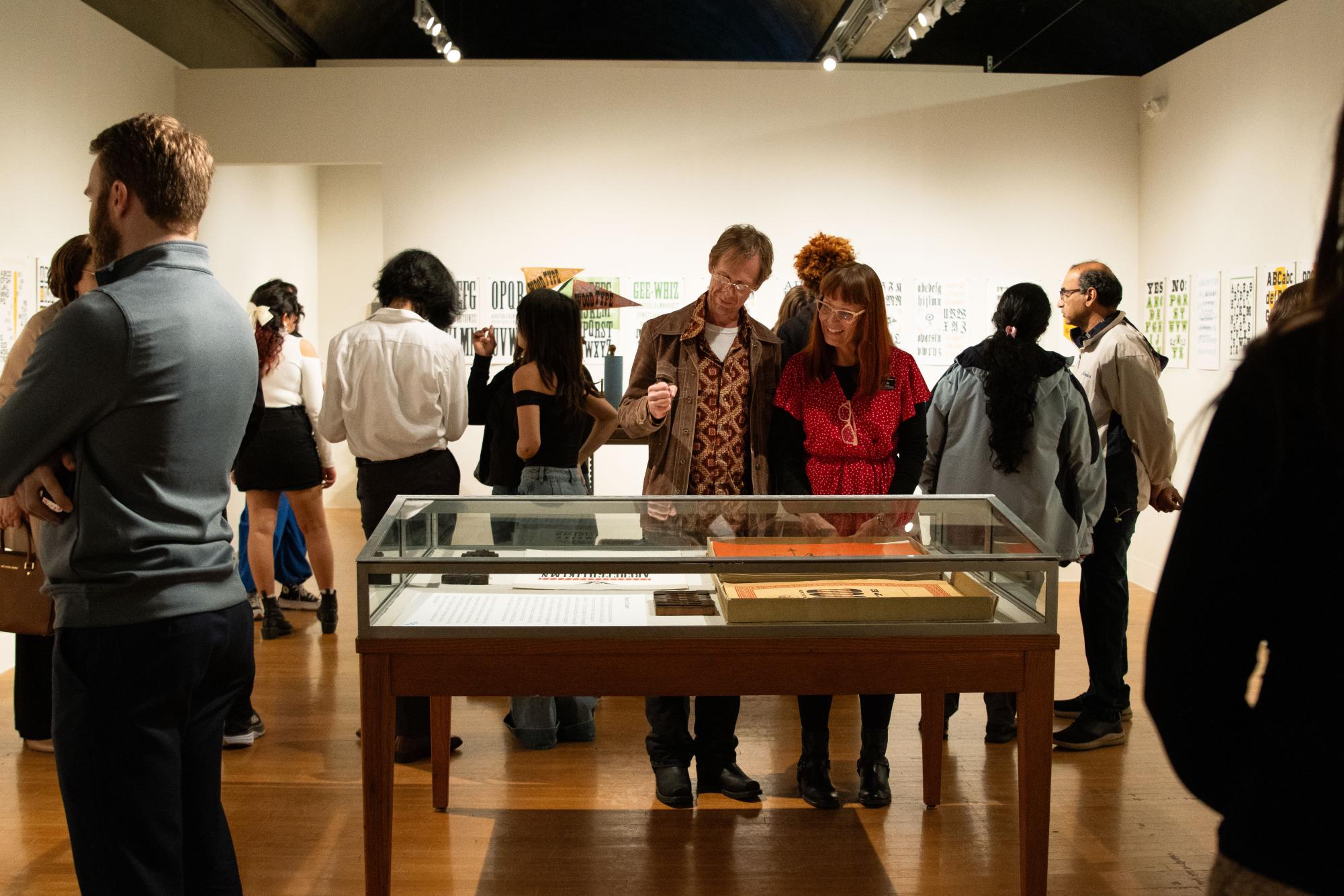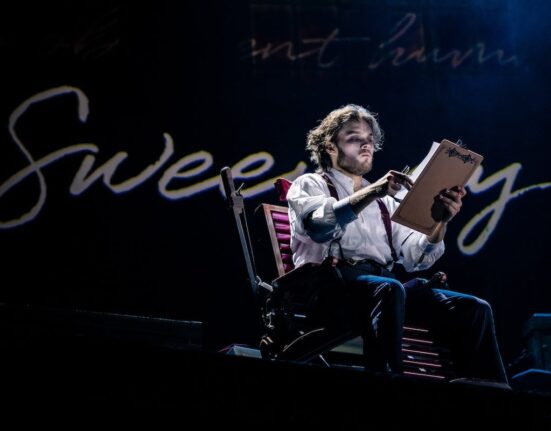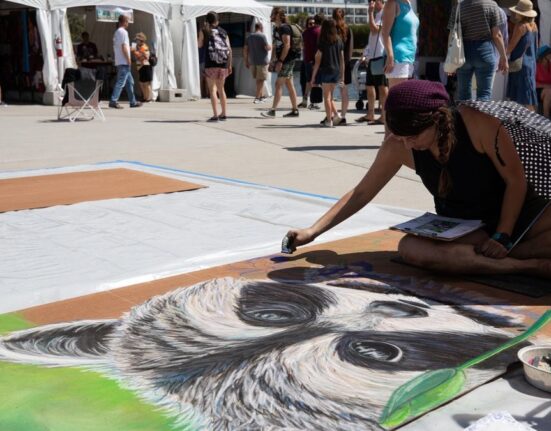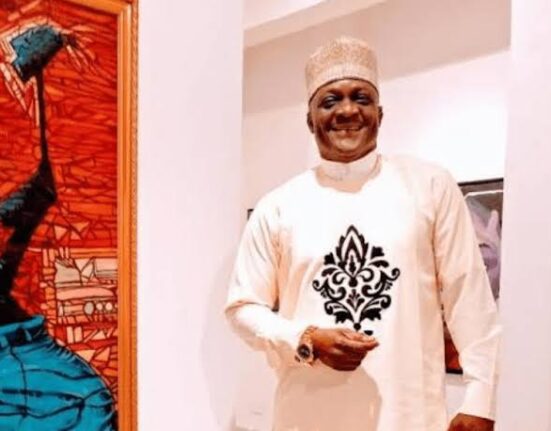Arranging wooden letter blocks, students in the design studio skillfully lay out their desired pattern. This creative process unfolds as a sheet of paper rolls through the carefully arranged blocks, resulting in a captivating wood type print.
Last Friday marked the grand opening of Rob Roy Kelly’s wood type exhibition at the Visual Arts Center. On display until Feb. 10, the collection showcases the personal projects of students who participated in the RRK residency over the summer.
During the summer residency, students learned and worked with wood type, a technique for printing text, images or patterns. Design junior Avery Fox said she felt compelled to join the program due to the absence of technology.
“We have to use technology for … our graphic design classes — (it’s) rarely implemented (to create) without technology,” Fox said. “I really enjoyed (the program’s) experience — it was very grounding.”
Henry Smith, the program’s founder and show’s facilitator, said he wanted students to have as many creative opportunities as possible through the residency.
“(I started) this program where students can be paid to have dedicated time to explore,” Smith said. “My personal philosophy (is to) create as many opportunities and experiences as I can being a facilitator and creator.”
Smith said he also hopes the program connects students to the history of design.
“I created this program and this project (as) part of my aspirations for my role here (at UT),” Smith said. “This exhibition is getting students more engaged with the collection and bridging that gap of how students can feel like they can connect with this antique technology, helping empower them to explore design practice.”
The exhibit also features RRK’s works. The design educator collected wood type machines, some of which were sold to the Harry Ransom Center from the Museum of Modern Art in 1996. Fox said RRK’s works served as a foundation of learning.
“His portfolio … (has) a functional purpose that it serves, so I understand why it’s so minimal,” Fox said. “We wanted to take a different spin on it and provide a more refreshed version of (his works).”
The program required students to complete a personal project that represented their identity. Design junior Kenny Ly said the projects allowed students to reflect on who they are.
“My project is on representing some of the Vietnamese mythology that I found interesting,” Ly said. “We have other people showcasing their identity or parts about their family.”
Initially considering a career in graphic design, Ly said the program shifted his mindset.
“There’s the general trend of art and print dying out and the big AI take over,” Ly said. “While I’ll still probably end up (at) a corporate job of some sort, … on the side, I know that I could potentially make a living doing more fanciful print work.”
Fox said she hopes the exhibition inspires people to appreciate works made without technology.
“Put your computer down, put your phone down, whether you’re a designer or not,” Fox said. “I understand that it’s not practical to use analog techniques for everything, but the more that you can use your hands, the more you’re actually using your brain.”







